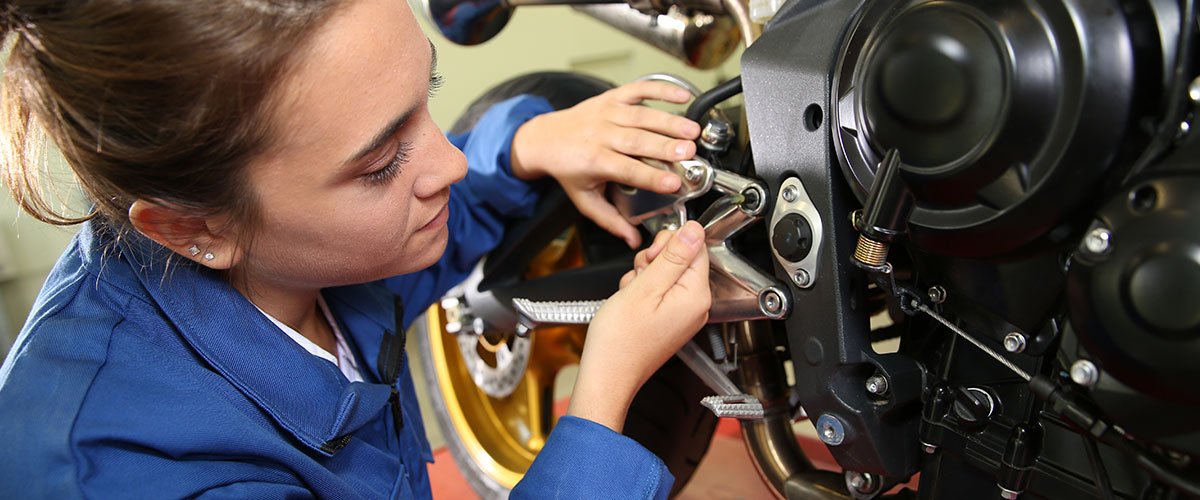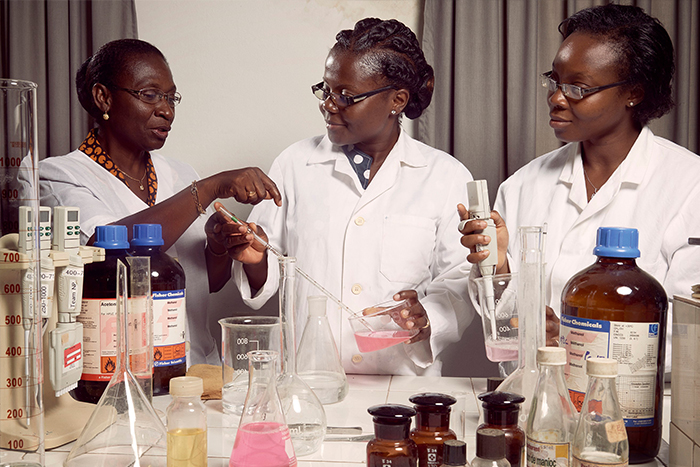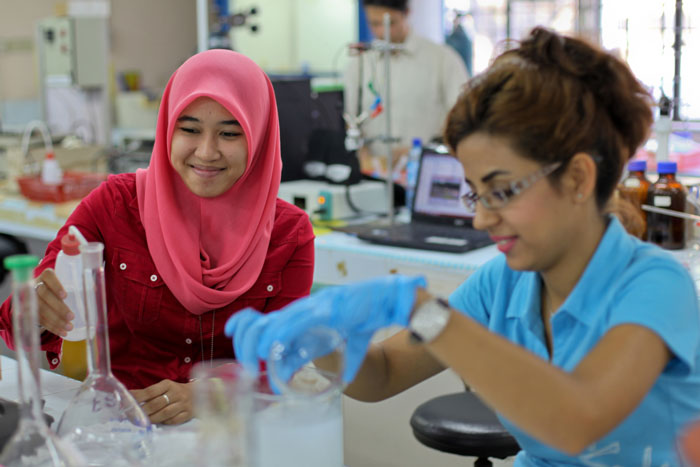
The UNESCO-UNEVOC International Centre: Who We Are | What We Do | Working With Us | Get in Touch
The UNEVOC Network: Learn About the Network | UNEVOC Network Directory
For Members: UNEVOC Centre Dashboard
Thematic Areas: Inclusion and Youth | Digital Transformation | Private Sector Engagement | SDGs and Greening TVET
Our Key Programmes & Projects: BILT: Bridging Innovation and Learning in TVET | Building TVET resilience | TVET Leadership Programme | WYSD: World Youth Skills Day
Past Activities: COVID-19 response | i-hubs project | TVET Global Forums | Virtual Conferences | YEM Knowledge Portal
Our Services & Resources: Publications | TVET Forum | TVET Country Profiles | TVETipedia Glossary | Innovative and Promising Practices | Toolkits for TVET Providers | Entrepreneurial Learning Guide
Events: Major TVET Events | UNEVOC Network News

8 March 2020
On 8 March, UNESCO-UNEVOC joined the world in celebrating International Women’s Day. In line with its ongoing work to empower women in and through technical and vocational education and training (TVET) – and particularly in science, technology, engineering, and mathematics (STEM) fields – UNESCO-UNEVOC reemphasized its commitment to promoting gender equality in all facets of TVET.
This year’s International Women’s Day marked the 25th anniversary of the Fourth World Conference on Women held in Beijing in 1995. The Women's Rights in Review 25 years after Beijing![]() , published by UN Women, highlights that progress on gender equality has been slow. For example, over the past 20 years, progress on women’s access to paid work has been limited - less than two-thirds of women between the ages of 25-54 are in the global labour force. Having said this, the review also highlights positive changes, namely that there are ‘more girls in school, fewer women dying in childbirth, more women in parliaments and a greater number of laws supporting women’s equality.’
, published by UN Women, highlights that progress on gender equality has been slow. For example, over the past 20 years, progress on women’s access to paid work has been limited - less than two-thirds of women between the ages of 25-54 are in the global labour force. Having said this, the review also highlights positive changes, namely that there are ‘more girls in school, fewer women dying in childbirth, more women in parliaments and a greater number of laws supporting women’s equality.’

UNESCO-UNEVOC’s focus on gender equality in STEM-related fields in TVET is no coincidence; STEM careers are often referred to as the ‘jobs of the future’. They have the potential to drive innovation, inclusive growth, and sustainable development. Ten UNEVOC Centres from around the world have taken the initiative to better understand the opportunities and challenges of increasing girls and women’s participation in STEM-related TVET. Preliminary results from the ongoing study show that:
• Female participation in STEM-related TVET is generally significantly lower than that of males at all levels
• Individual and societal factors play equally important roles in girls and women’s participation and achievement in STEM-related fields in TVET
• Peer and especially parents’ perceptions prevent and facilitate girls’ participation significantly
• Institutional culture, teaching practices, learning and assessment, and the availability and nature of learning materials, amongst others, have a significant impact on girls’ participation and their achievement in STEM-related fields in TVET
While the challenges exist, experiences from UNEVOC Centres around the world show possible ways forward to address these gaps.
Role models can help to encourage girls to take up STEM subjects in education and training. The Women in STEM initiative, which was launched in 2018, aims to inspire the younger generation to take up STEM careers. The vision sets a roadmap to increase female enrolment in science and technology subjects, and in particular targets increasing the number of women in leadership positions in STEM careers that can act as role models.

The Techniekpact in the Netherlands is part of a drive to ensure that the country is seen throughout the world as a hub for innovation and research. A part of that drive is to ensure greater participation of girls in STEM-related fields in TVET. One of the identified challenges relates to the lack of awareness and guidance that young girls are given. To this end, the vision aims to improve the flow of students to technical fields by focusing on their talent development, ensure better career guidance, and integrate technical subjects in earlier levels of the education system.
Find out more: https://www.techniekpact.nl/![]() (in Dutch)
(in Dutch)
Initiatives in Germany, such as dedicated open days and the “Komm, mach MINT” initiative (“Come and get involved in STEM”), help to expose girls to STEM careers by putting them in touch with companies and enterprises. Such initiatives encourage enterprises and companies working in STEM-related fields to open their doors to female school students, who can then spend a day interning in a STEM occupation. About 1.9 million girls have participated in such programmes since 2001, involving almost 10,000 companies in the process.
Find out more about the “Komm, mach MINT” initiative: https://www.komm-mach-mint.de/komm-mach-mint![]() (in German)
(in German)